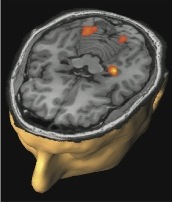Thinking and Learning
This month, the Royal Society has published its latest report on neuroscience and education, Brainwaves 2. It is a gloriously positive assessment of learning and the contribution science can make to fulfilling its potential.
The report’s summary suggests that the fertile common ground between the disciplines offers a “future where educational practice can be transformed by science” and goes on to describe the key insights that might eventually lead to such a change.
It’s a fascinating read that I’ll unpack over the next few posts but I just wanted to start by flagging its main findings and recommendations.
“Education is the wellspring of our health, wealth and happiness”
Among the insights and opportunities that neuroscience provides for a transformation in education, the report describes:
- how both nature and nurture affect the learning brain – some characteristics are ‘hard-wired’ at birth and respond differently to environmental influences
- neurological plasticity – everything we do throughout life changes the brain
- the influence of expectation and uncertainty on the brain’s response to reward – the accuracy of our predictions affects motivation
- the brain’s mechanisms for self-regulation – self-control and delayed gratification are associated with higher educational attainment
- the cognitive enhancement provided by education – learning improves our ability to think
- how individual brains create differences in learning ability – not everyone thinks the same
- how neuroscience can inform adaptive learning technology – understanding the issues can highlight the most effective solutions
As I say, it’s a treasure trove of ideas that I’ll comment on over the next few days. I think there are some interesting day-to-day implications for how we learn and facilitate learning. I’ll be interested in hearing what you think too.
Meanwhile on the basis of their thoughts (and the associated challenges), the Society recommends the following:
- Neuroscience should be used as a tool in educational policy
- Training and CPD should include a component of educationally-relevant neuroscience
- Neuroscience should inform adaptive learning technology
- Knowledge exchange should be increased
No-one’s going to argue with those, but it remains to be seen whether the Powers that be see fit to follow them up.


Trackbacks/Pingbacks
[…] to the Brainwaves 2 report from the Royal Society this month (summarised earlier), education is “the most broadly and consistently successful cognitive enhancer of […]